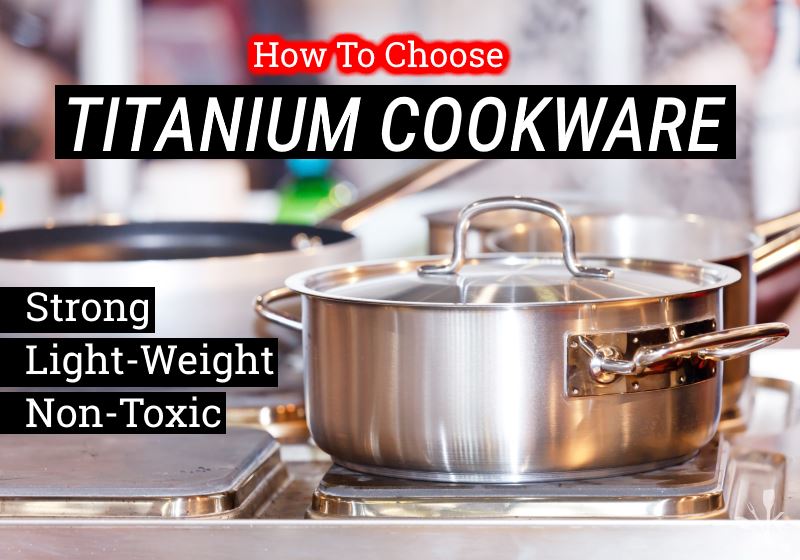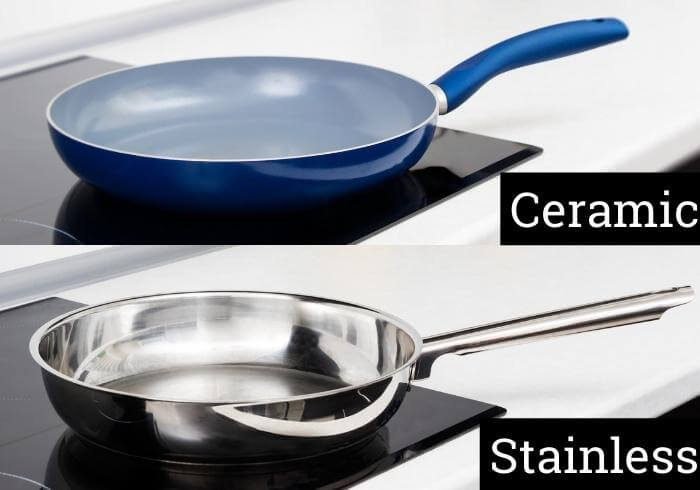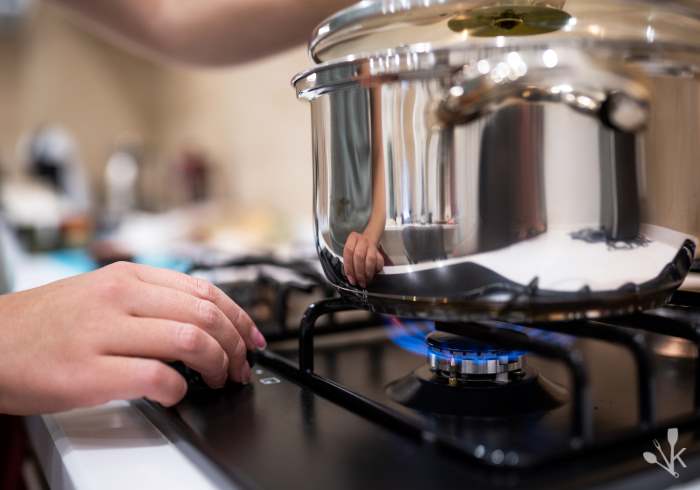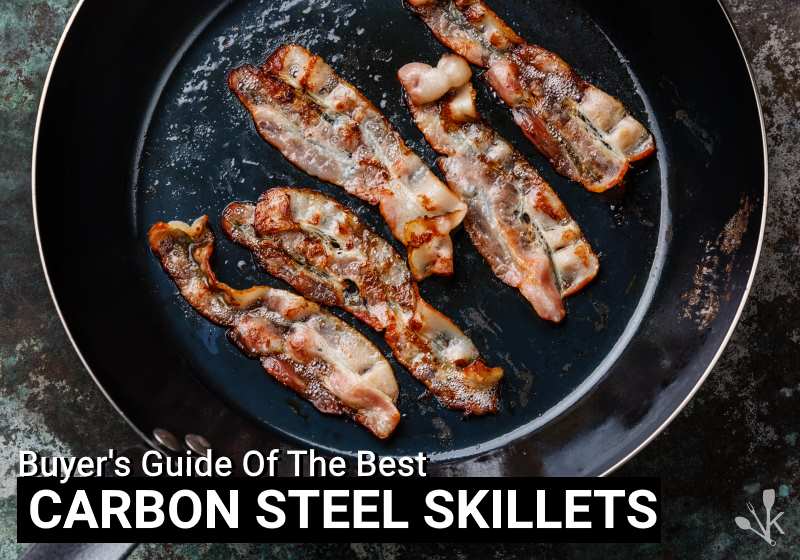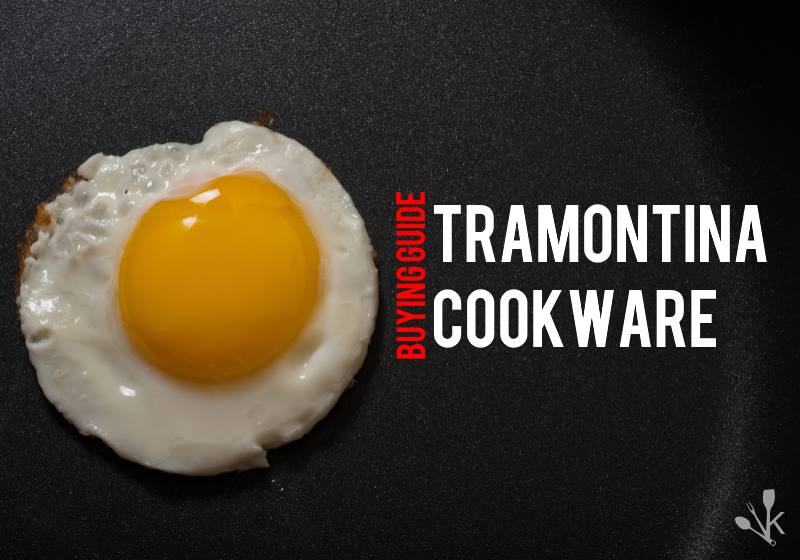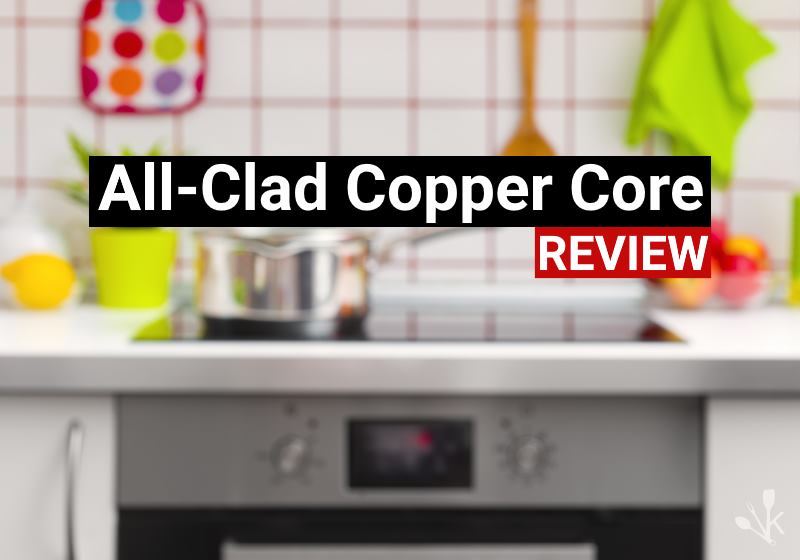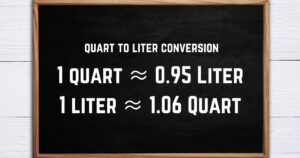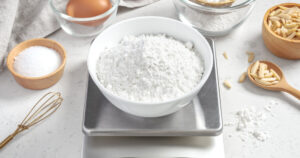Cookware choices have increased over the years, and now we have more options than we ever could have imagined. And many of us are looking for safer, healthier alternatives.
Is there cookware that can meet these requirements and still be easy to use? The answer is a resounding yes.
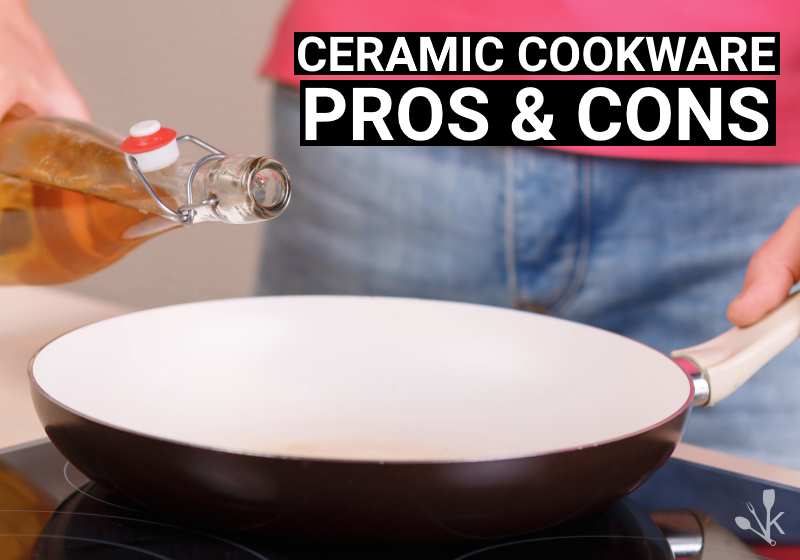
Ceramic cookware may be just the answer we are all looking for.
But before you throw away your Teflon pan, or retire your cast iron skillet, let’s look at the pros and cons of ceramic cookware so you can make the best decision for your particular needs.
What Is Ceramic Cookware?
We have all seen ceramic vases and dishes, so ceramic items are not new to us. But is ceramic cookware the same thing? Well, yes and no.
There are two types of ceramic cookware available today.
- 100% Ceramic Cookware
- Ceramic Coated Cookware
The first type is similar to our ceramic vases and flower pots. These are the ones that are kiln-baked, with a specialty glaze. It’s often referred to as 100% ceramic cookware as seen in our Xtrema cookware reviews.
The second type of ceramic cookware contains only a coating of ceramic enamel. These pots and pans are actually made of metal, such as aluminum.
These ceramic coatings are known for their great nonstick properties.
In fact, you’ve probably seen the “As Seen on TV” labels for cookware like the Gotham Steel Pan which is considered some of the best nonstick cookware.
SEE ALSO: Is Ceramic Cookware Safe?
Ceramic coated cookware is one of the most popular types with home cooks for many reasons, as we will see below.
Pros Of Ceramic Cookware
There are definitely several advantages to owning and using ceramic cookware. Let’s look at the benefits of ceramic cookware, why these are so popular among home cooks, and why they might consider a set for your kitchen.
Reduces Need For Oil And Butter
The ceramic coating, which is bonded to the cookware provides a non-stick cooking surface.
This reduces the need for unhealthy oils, cooking sprays, and butter to prevent our foods from sticking. If you are seeking a healthier option for your cooking, then this may be it
Easy Clean-up
Who has the time, or desire, to scrub pots and pans these days? The quicker and easier the clean-up, the better. This is another advantage of owning ceramic cookware.
Forget about the scourers and metal scrappers you had to use in the past.
After use, let it cool before wiping it with a warm cloth or sponge. You can also add a dab of dishwashing soap, a little warm water, and swipe the minor mess away. It really is that simple.
For more details, see our how to clean a ceramic pan guide for step-by-step instructions.
Lightweight
An additional benefit of ceramic cookware is that it is extremely lightweight, and you can move it around with ease. No straining as with cast iron skillets or pots. Ceramic cookware comes in various styles and sizes, and most, if not all, are lightweight.
Free Of Toxic Chemicals
A big pro for ceramic cookware is that it is free of toxic chemicals.
Unlike Teflon, which met with devastating headlines announcing its potential toxins, ceramic cookware is free of both polytetrafluoroethylene (PTFE) and also perfluorooctanoic acid (PFOA).
This fact alone boosted the popularity of ceramic cookware and continues to do so today.
SEE ALSO: Ceramic vs Teflon Cookware
Non-Reactive
Ready to cook up a batch of your grandmother’s old country spaghetti sauce recipe?
If so, you won’t have to worry about the acid in tomatoes reacting with the materials inside your ceramic cookware. In other words, there will be no metallic taste to your food or an odd change in color.
This is the case with any acidic foods or sauces you add to your ceramic cookware.
Cons Of Ceramic Cookware
Now that we’ve looked at the pros, it’s time to examine the cons.
Although ceramic cookware has many good qualities, there are a few areas where it falls short.
So, before jumping in and going all ceramic, consider these cons and how important they are to you.
High Heat Temperature Damage
There are times we all get in a hurry and need a meal to cook just a little faster. We turn the heat up higher than we normally would, thinking this will solve the time issue.
This is a bad idea, however, if you are using ceramic pots and pans. High heat will damage the non-stick surfaces.
SEE ALSO: How Do I Know If My Skillet Is Oven Safe
While the cookware can be used on any stove, electric, or gas, there is a greater risk of damaging the ceramic coating when the flames of a gas stove are too high.
For this reason, we highly recommend you never use high heat on any type of stove, but especially on gas stoves.
If you need to use high heat cooking, check out our ceramic vs stainless steel cookware comparison guide.
Chipped, Cracked, And Scratched Easily
Who hasn’t accidentally scratched up a pot or pan with a metal utensil? With ceramic cookware, however, you will always want to be aware of the possibility of damaging the non-stick coating, by chipping, cracking and scratching.
It’s so easily done, and if you’re in a hurry, the damage you do may require you to purchase a new set of cookware sooner than you want to.
Instead of metal utensils, use cooking utensils made of silicone, plastic, nylon, or wood. Also, refrain from using any knives on the ceramic cookware’s surface.
Ceramic cookware is much more delicate than stainless steel, so be sure to treat it as such.
Dishwasher Safety
Many manufacturers of ceramic cookware claim it is all dishwasher safe. However, we always recommend gentle hand washing instead.
Subjecting the ceramic cookware to repeat harsh cycles of water and strong detergents in dishwashers can do excess damage to the non-stick surfaces.
To prolong the life of your cookware, hand wash it instead.
Not Induction Compatible
As you probably already know, there are differences between conventional electric or gas cooking and induction cooking. As such, it’s important to know what cookware should and shouldn’t be used with each.
Any cookware containing ceramic, aluminum, copper, or glass cannot be used with induction appliances.
Therefore, if you do use induction methods for cooking, ceramic cookware may not be an option for you as few brands include induction capable bottoms.
Needs To Be Replaced Quicker Than Teflon
Perhaps one of the biggest downfalls of ceramic cookware is that it doesn’t last as long as other types of cookware, including Teflon.
Take the best possible care of your ceramic cookware from the start. By handwashing and other measures such as using non-metal utensils, you can prolong the life of your cookware until you are ready to buy more.
Should You Buy Ceramic Cookware?
The ideal user of ceramic cookware is one who is looking for a safer, greener, healthier option when it comes to cooking. This user will also value its lightweight and ease of cleaning.
Ceramic cookware is not for those who are looking for a more durable option that doesn’t chip or scratch easily and can be put in a dishwasher without worry.
It is also not for those who use induction cooking methods. Now that you know the varying pros and cons, you are better able to make an informed decision on whether or not ceramic cookware is right for you.
If you’re looking for the best ceramic cookware, check out our buying guide for the latest reviews and most frequently asked questions.

